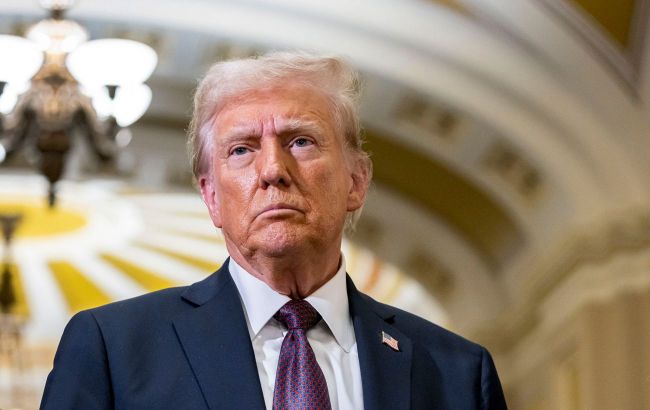Over 20 states file lawsuit against Trump's executive order banning birthright citizenship
 Donald Trump (photo: Getty Images)
Donald Trump (photo: Getty Images)
Attorneys General from 22 states have filed a lawsuit to stop President Donald Trump's attempt to end the long-standing practice known as birthright citizenship. This rule guarantees that children born in the US automatically receive citizenship, regardless of their parents' status, reports the Associated Press.
Trump's executive order, which is about 700 words long, was signed late Monday evening. This move fulfills one of his campaign promises. However, its implementation remains uncertain, as a lengthy legal battle over immigration policy and the constitutional right to citizenship is likely ahead.
Democratic Attorneys General and immigrant rights advocates argue that the issue of birthright citizenship is already settled by law. They emphasize that while presidents have broad powers, they are not kings.
"The president cannot, with a stroke of a pen, write the 14th Amendment out of existence, period," said New Jersey Attorney General Matt Platkin.
The White House responded by stating that they are prepared to face the states in court, calling the lawsuits nothing more than a continuation of left-wing resistance.
"Radical Leftists can either choose to swim against the tide and reject the overwhelming will of the people, or they can get on board and work with President Trump," said White House deputy press secretary Harrison Fields.
Meanwhile, Connecticut Attorney General William Tong, who is a US citizen by birth and the first elected Chinese-American Attorney General in the country, stated that the lawsuit is personal to him.
"The 14th Amendment says what it means, and it means what it says - if you are born on American soil, you are an American. Period. Full stop. There is no legitimate legal debate on this question. But the fact that Trump is dead wrong will not prevent him from inflicting serious harm right now on American families like my own," he said.
Signing of executive orders
On his first day in office, US President Donald Trump began signing executive orders. These addressed energy policy, immigration, national security, and the reversal of several decisions made by the administration of Joe Biden. Since these documents do not require Congressional approval, they can be executed quickly.
Trump began signing his first orders at the Capital One Arena in Washington, where the presidential parade was taking place. After some time, he headed to the White House to continue signing.
For more details on the first executive orders Trump signed, read the article by RBC-Ukraine.

